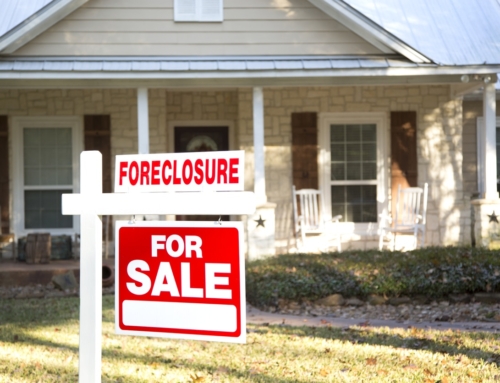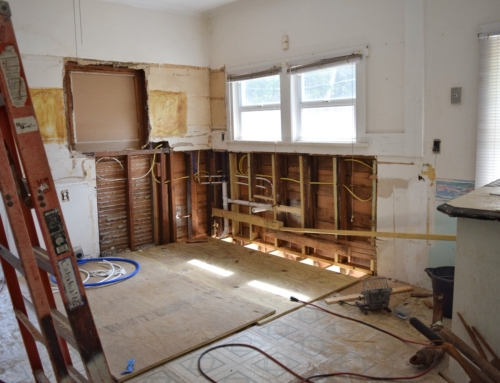When you need work done on your home – especially to the extent caused by Hurricane Ian in September of 2022 – it is critical to hire a general contractor or specialty tradesman to do the job correctly, and to live up to their agreements.
After Ian struck, contractors came out of the woodwork in Southwest Florida, looking to profit from the devastation in cities like Fort Myers Beach, Cape Coral, Pine Island, and the rest of the region.
While there is nothing wrong with soliciting business for a roofing, plumbing, electrical, drywall firm or any other related business, the fact is there are some unscrupulous people who will portray themselves as legitimate when they are not.
Going through a thorough vetting process and spending time on the right type of research can mean the difference between a successful project and a rip-off scammer.
The hurricane has unfortunately brought out all types of situations where someone purported to be capable of quality, timely and reasonably priced work, as well as be correctly licensed and insured by the state, but has not lived up to their end of the agreement.
There are more than a few cases where roofing contractors have shown up at the wrong address and started tearing off the old roof, so-called contractors taking large deposits and then not doing the job, unlicensed ‘companies’ from all around the country using inadequate or fake state certification, and more.
When you need repairs to your home, large or small, the last thing you need is the hassle of being taken advantage of, and possibly losing thousands of dollars.
Some Tips for Hiring the Right Contractor
Ask Around – There are several sources for looking for a reputable contractor or tradesman, like someone you know and trust who hired them and was satisfied with their work, places like home improvement or building supply companies, online services with reviews on the business and more.
You should start with asking those you may know for recommendations. In Cape Coral, Florida, for example, there are several Facebook Groups where members ask for referrals for fencing, drywall, roof repair or replacement, electrical, pool contractors and more, and information on their experiences.
While this should not be your only source of info, it can be a good way to start. If you see different group members recommending the same specific company or service repeatedly, it can be a good indicator of their reputation and capabilities.
It is also a good way to read posts about a negative experience someone may have had and make a note to steer clear of that company.
Call Them – In your initial phone call to a prospective contractor, you will learn a lot about their business. Do they answer their calls, or at least have a recorded message asking you to leave your information so they can call you back? If you do leave a message, do they in fact call you back?
What is their attitude toward your project? Everyone understands the demands on contractors and everyone in the construction trades is very high right now, especially after a major storm. But the way they interact with you on the first phone call can say a lot about what to expect.
You should prepare a list of questions for that initial call, asking things like are they known for and capable of your specific project, can they provide references of people who have used their services and provide contact details, supply you with verification of all the appropriate state and local business and licensing requirements, business insurance and more.
One of the key moments come when you try to set an appointment for them to come to look at your project. Those that actually show up at the agreed time are somewhat of a rarity today, and the ones that keep blowing you off or don’t address your questions should be a red flag.
A critical element is the ability to go and see the work they’ve done at a home near yours. If they’re unwilling to provide that information, you may want to be wary.
Ask for Written Proposal – You will want a complete, detailed project proposal including every detail in writing. This not only should include costs for the job, but scheduling details, payment requirements, conditions related to acquiring and delivering materials, and all of the fine print that creates a legal contract.
Financially, be prepared to address a request for an up-front deposit, particularly if it is half or more of the proposed contract. While it is not unreasonable for a contractor to require a deposit to start the project, especially for a large scale jobs, some will demand an up-front payment and not show up for the actual job.
A contractor who may be from out of the area and does not provide sufficient proof of their financial stability may end up taking your money and disappearing. If you’re asked to pay more than 10% of a job quote, you need to ask why and make sure to get all of the financial details in writing.
Some contractors will provide a payment schedule, like a specific amount as a down payment, another percentage during a certain part of the job, and a balance due at completion.
A prime example of the importance of getting everything in writing is how change orders are handled. Inevitably, many large scale construction projects will encounter problems with additional work that becomes evident after the job is started, issues with materials being available, and more.
If the contractor cannot address those situations ahead of time, you leave yourself at risk for unexpected costs.
You Get What You Pay For – Sometimes – In the process of getting written bids from prospective contractors, you’ll find some companies that have been in business for decades, have many positive online reviews, and are well known in your area.
Others may say they can do the same job for the same or lower costs, but you and people you know have never heard of them before.
If a company has operated in your area for 20 or 30 years, they will have countless former customers with whom you should talk. Word of mouth goes a long way in selecting a reputable, honest contractor, even though another vendor may say they can do the same job at a lower cost.
Never let price alone be your deciding factor – you may regret it later. Getting more than one bid is always a good idea, and don’t automatically sign with the vendor with the lowest quote. This is a classic example of comparing apples to apples, making sure that all details are submitted in writing.
Other concerns include obtaining permits for your project. Make sure that all permitting services are part of your agreement and be aware if a contractor says they aren’t sure if you’ll need a permit or not, because a reputable licensed contractor in your city should know.
Also, getting lien waivers from your contractor is a smart move. This will ensure that you aren’t financially on the hook if the contactor doesn’t pay the shingle supplier, drywall company or any other third party vendor involved in getting your project done.
Whether storm related or not, any type of home repair or improvement project requires considerable research and inquiry in order to hire the right contractor. To keep from adding insult to injury, do everything you can to verify your choice of contractor before signing any written agreement.







Leave A Comment